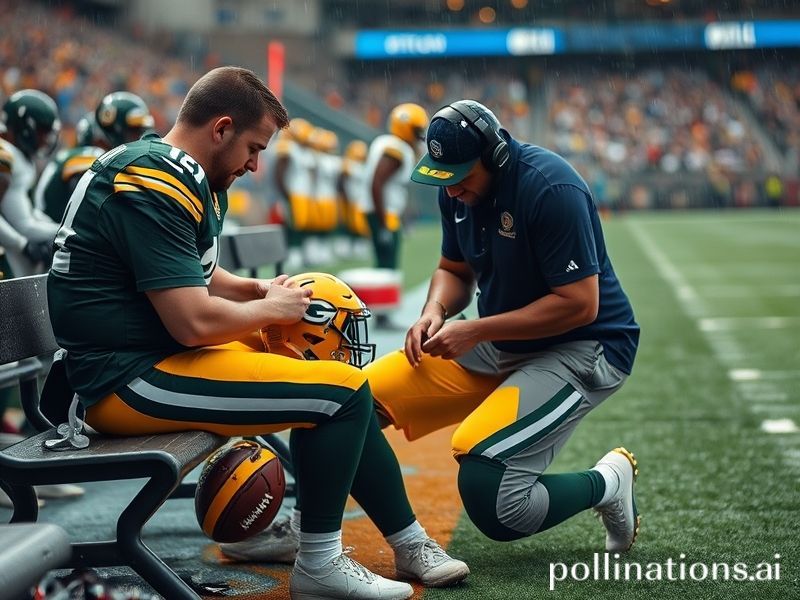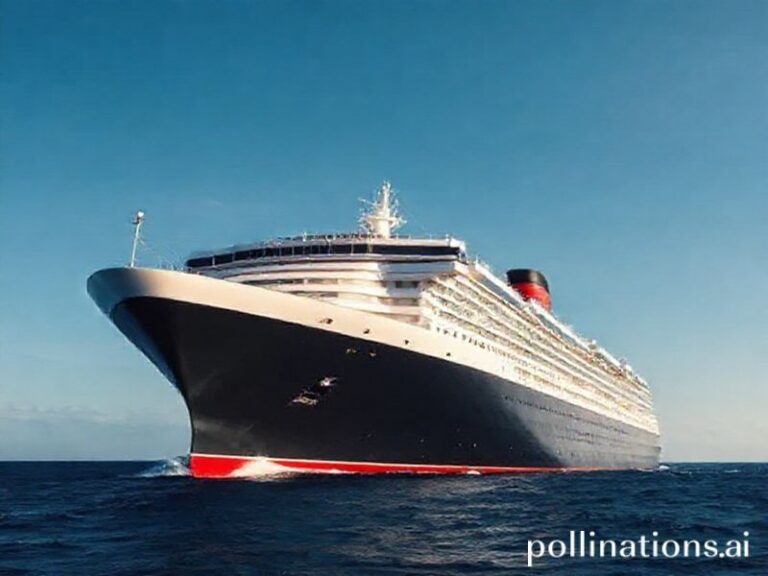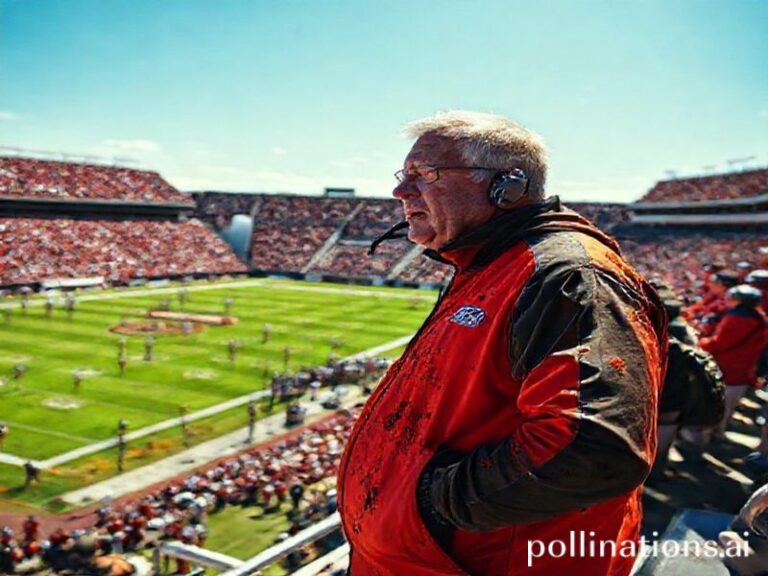Tucker Kraft’s Torn Pec: How One NFL Injury Briefly Unites the World in Cynical Sympathy
Green Bay, Wisconsin—population 100,000, annual snowfall 48 inches, and, as of last Sunday, the temporary epicenter of global schadenfreude. Tight end Tucker Kraft, whose last name sounds like a budget German cheese spread, tore his pectoral muscle during what coaches optimistically call “non-contact drills,” a phrase that translates in any language to “nobody touched him, he just exploded on his own.” From Lagos to Lahore, the injury has been greeted with the same ritualistic shrug: another American gladiator sidelined by the act of lifting heavy objects in the name of sport, capitalism, and prime-time advertising slots.
The pec tear itself is medically straightforward—muscle meets resistance, resistance wins, season meets shredder. Yet its ripples reach far beyond Lambeau Field. In Nairobi, where rugby sevens players tape their cleats together with discarded surgical masks, Kraft’s $1.1 million salary for 2024 is roughly the annual budget of the Kenya Rugby Union. In Paris, where the Olympics loom like a hangover no one remembers ordering, sports scientists are already grafting Kraft’s MRI slides onto PowerPoint decks titled “Preventing Billion-Dollar Embarrassments.” The injury has become a sort of capitalist haiku: small tear, big numbers, existential sigh.
Global supply chains, ever the drama queens, have also taken note. The Packers’ medical staff now require a fresh shipment of Icelandic collagen, Swiss PRP kits, and Japanese kinesiology tape—items that, in another life, might have been used to patch up Ukrainian soldiers or Tokyo office workers with badminton elbow. Meanwhile, Amazon’s algorithm, that omniscient gossip, has already begun suggesting pec-straps and kettlebells to anyone who once googled “Aaron Rodgers ayahuasca.” Somewhere in Shenzhen, a factory is retooling to meet the sudden surge in elastic bandage orders, because nothing says late-stage globalization like an NFL player’s torn muscle rerouting container ships.
Betting markets, those mood rings of human greed, moved faster than the surgeon’s scalpel. Within eight minutes of the leak, DraftKings users in Ontario were parlaying Kraft’s absence into wagers on the over/under for Jordan Love’s interceptions. In Manila, offshore sites offered prop bets on how many times the broadcast would replay the slow-motion flex-and-pop of the offending lift. The line settled at 3.5; the house, as always, anticipated our appetite for slow-motion carnage.
Diplomatically speaking, Kraft’s injury is the soft-power equivalent of a popcorn fart. Still, the U.S. State Department monitors such micro-events because nothing erodes American prestige abroad quite like watching a 250-pound man earn an annual teacher’s salary every week only to disintegrate while stretching. Chinese state media ran the clip with the chyron “Fragile Empire,” which is rich coming from a country whose soccer league once lost three goalkeepers to ACL tears during the national anthem.
And yet, there is something almost poetic in the universality of the response. Whether you’re a rice farmer in the Mekong Delta or a bond trader in Canary Wharf, the lesson is identical: bodies break, plans unravel, and the show lumbers on. Kraft will rehab, the Packers will adjust, and somewhere a kid in São Paulo will watch the highlight, decide American football is stupid, and stick to futebol—where at least the injuries look intentional.
In the end, the torn pectoral is less tragedy than trifle, a reminder that the gods of sport demand tribute in the form of perfectly sculpted deltoids. The world will keep spinning, cargo ships will keep detouring, and Tucker Kraft—bless his shredded cheese of a surname—will return next season to do it all again. Until then, the international community can revert to its usual pastimes: trade wars, climate anxiety, and debating whether that was a tear or just the sound of late capitalism ripping at the seams.







